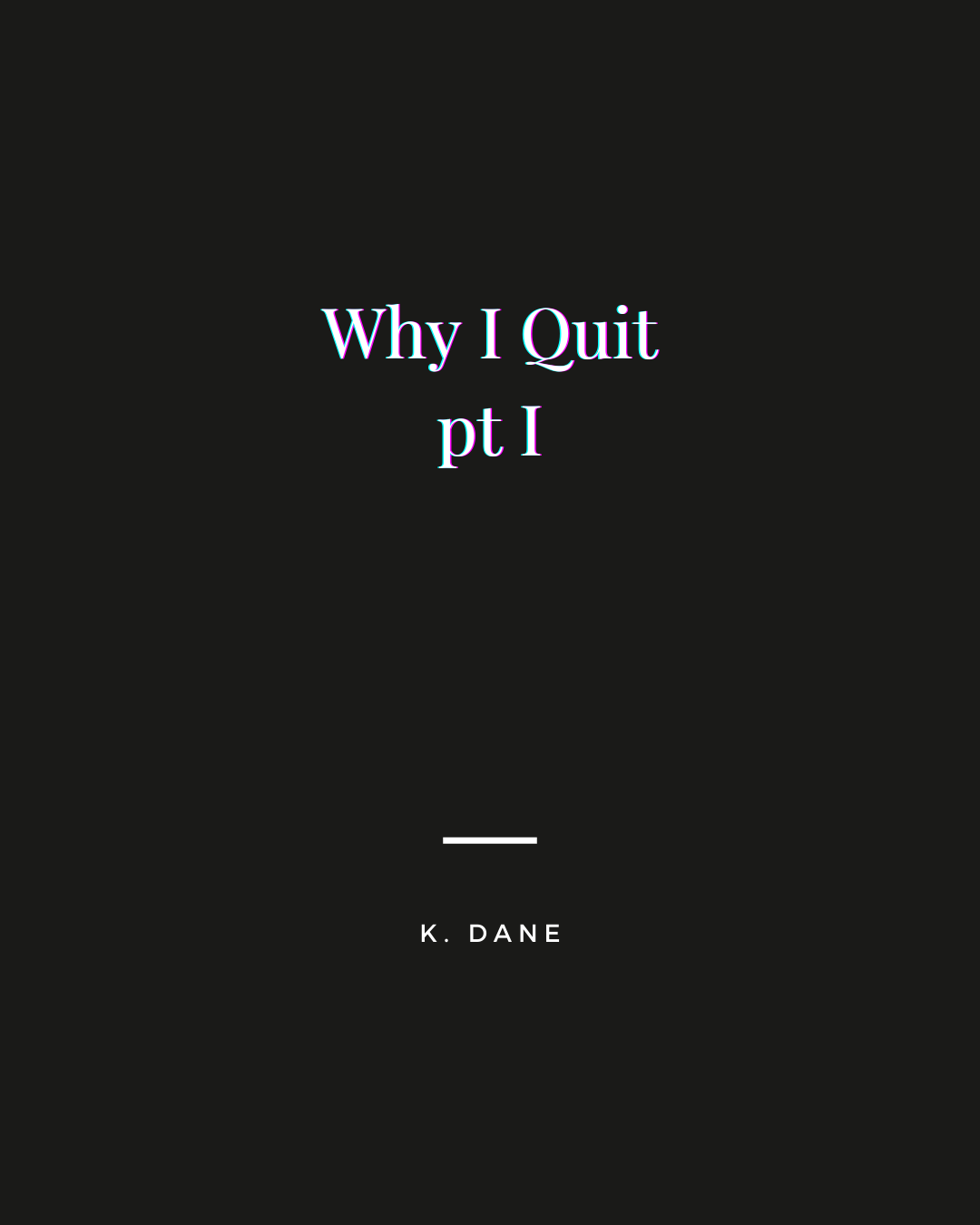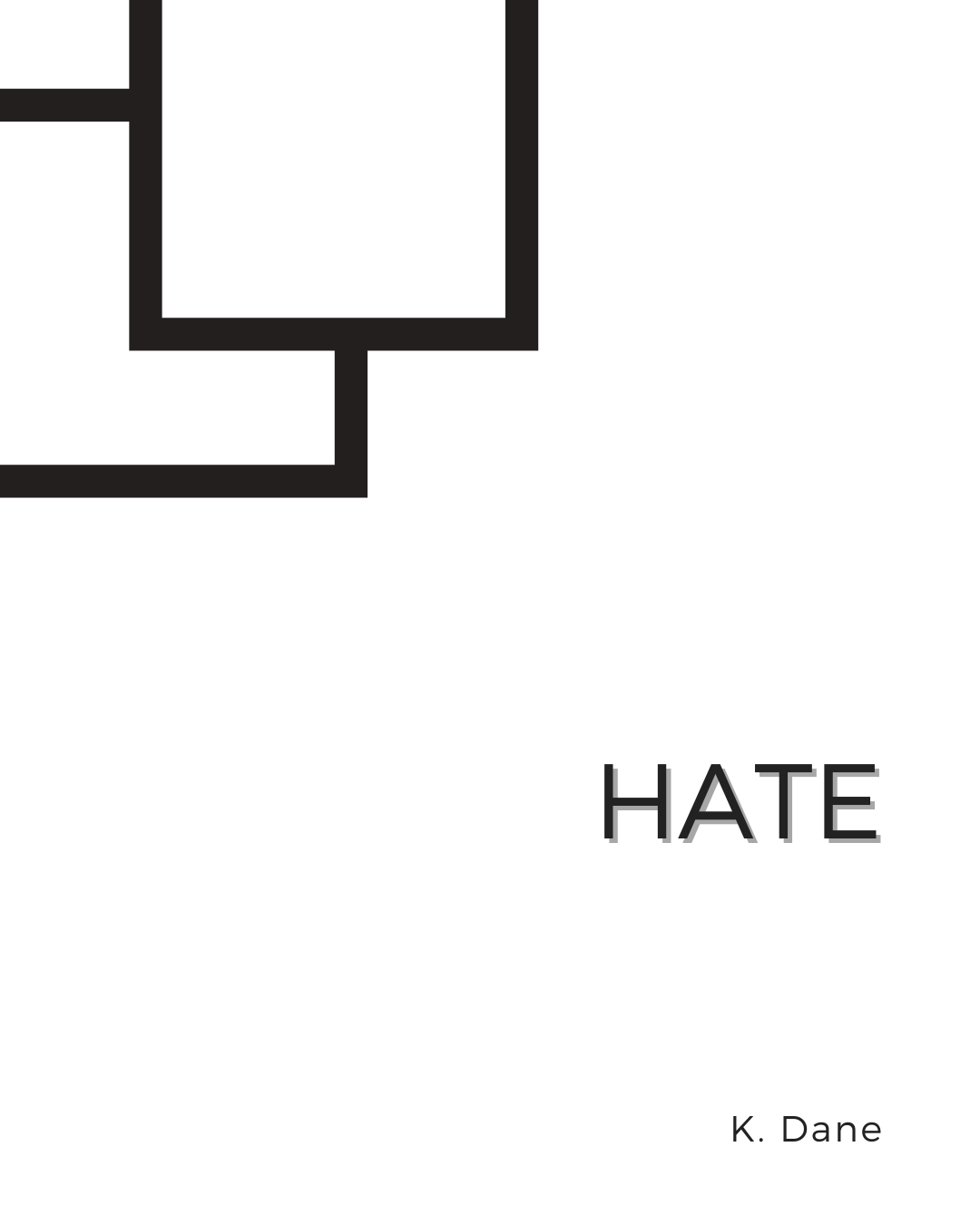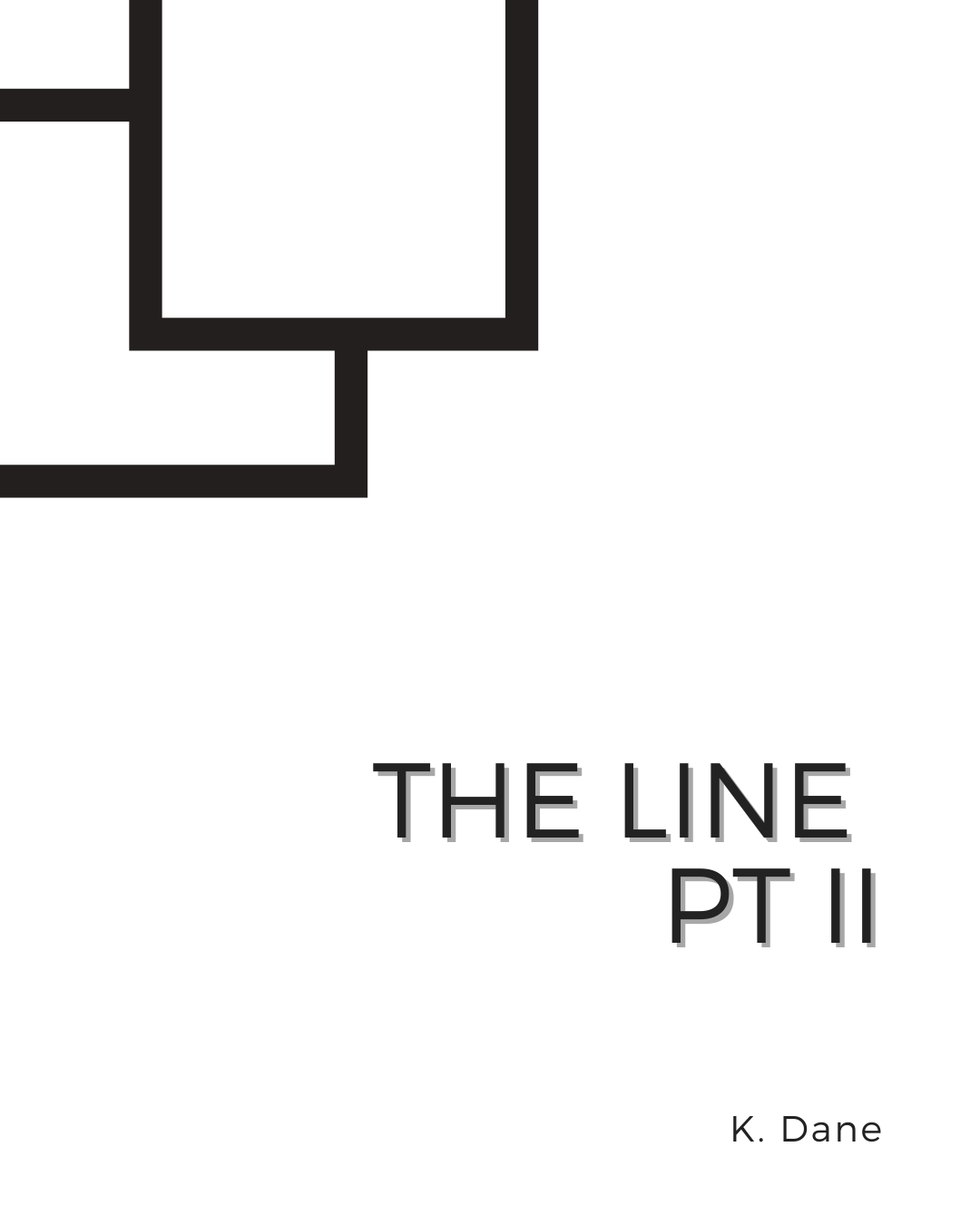Why I quit
I swore I would never work for another person. The army taught me that I couldn’t work for another employer. I worked under too many people who were too hungry for power. I worked for too many small people with small ideas; too many people whose biggest aspiration was to flex their muscles and show that they were in charge. I worked for too many people who flaunted their power to show that they were in charge, by harming others and making the lives of other people as miserable as their own. I worked for people who sought joy by trying to steal it from other joyful people, or by satiating their sadism by basking in the agony and suffering of others.
I had maybe a handful of great leaders. I had a handful of wonderful people who were in charge; people I really looked up to and admired. A handful of people that believed in me and who pushed me to strive for better. Even when I eventually let some of those people down, they never stopped seeing the value I brought to the team—the value I brought to the world. They knew there was more to me, and they believed that I was worth something. They all believed that not only could I do great things for the army, but that I could— and inevitably would—do great things for the world.
I met some great people, also. Eventually, I came across F. F made me break my promise to never work for anyone. He was like one of those leaders in the Army. I really looked up to F. I admired some aspects of his lifestyle, but more importantly, I admired some aspects of his character. He was honest, extremely generous, and thoughtful. Caring. Understanding. Calculated. Unfortunately, he went on to lose many of those character traits. What became most apparent was that he just stopped seeing my value. I believe that’s when I realized it was over.
I don’t want to sound like a spurned lover because it was nothing like that. He was my employer, and I saw him as a friend and a mentor. Part of the reason I knew my time working for F was at an end is that it stopped feeling like a partnership. In the beginning, it felt like I had a voice. I was truly making my own schedule and working at my own pace. I brought great ideas to the table. Gradually, that blank check started to get cashed in and exchanged for very, very long chains. My open field of possibilities became a large, but enclosed cell. Over the course of 4 years, it became a very small cell.
I gradually started to feel like I was more of a headache than an asset. It was less about my ideas and more about production. Unfortunately, the rubric and method by which my productivity was measured was never effectively explained. At times, it seemed that the number of clients I engaged determined how “great” of a job I was doing. At times, it’s like they (my employers) preferred quantity to quality. Other times, they complained that I spent too much time maintaining high-priority contracts in high-priority locations, and not enough time venturing into the more distant and/or moral locales. Put simply, the directive was often misconstrued and left too much room for misinterpretation. It was evident that there was a large breakdown in communication. Naturally, if a customer is dissatisfied with customer service, that falls on the shoulders of the customer service representative. When the customer is dissatisfied with a product, however, who is to blame? Well, naturally, my employers began to question my loyalty to the organization and accuse me of turning the customers against the company and the products it provided. That was probably the moment I realized that this wasn’t going to end well. That’s when I realized that my days were numbered. I felt my every position being questioned, and my every action being criticized.
In the past, I had worked wonders and bedazzled my company. Towards the end of my tenure, when I accomplished the impossible, it was no longer viewed with awe. I had done impossible things so often, it was considered the norm. It made my “normal” accomplishments so mundane, they were perceived as less than. “Well, what exactly did you do?” Became more commonplace. When it became less about taking care of the customer and more about satisfying my employers, it stopped being fun. It stopped being fun because the rubric by which my contributions were measured, was far too entropic. Not only that, it wouldn’t be shared with me until I made a misstep. To add fuel to the fire, every step was a misstep. My dream opportunity turned into a nightmare and a trigger for my depression.
That is why I knew I had to leave. The money wasn’t great and had never been great. It wasn’t until I eventually left that I realized how grossly underpaid I was. Typical consultants with my experience and reach were making almost triple what I was being paid. I never complained about my pay. I received only one raise in my 5 years with the company, which wasn’t customary or fair practice. I also only received one bonus. I never received any commission for the large contracts I brought in. Again, I never questioned any of this while I was still working because I wasn’t overly concerned with the pay. I believed—for some strange, twisted reason—that my efforts would one day be rewarded; that day never came. Did I need the money? Well, yes. Money, however, was only part of the reason I stayed, and on my list of reasons, it was neither two nor three.
- F
- Loyalty
- Freedom
- Fun (I was having so much fun)
- The flexibility I was afforded
- The money
When I lost the number 1 reason, it made the lack of freedom, fun, and flexibility hurt even more. It also made me question why I would be so loyal to a person or an organization that saw me as such a replaceable asset.
And so, I quit.
This story, however, is far from finished.
Spoiler alert: That company still hasn’t been able to find a suitable candidate to replace me. A large portion of the clients I brought in have moved on and a great deal of the contracts I acquired have been terminated.
Interesting…





